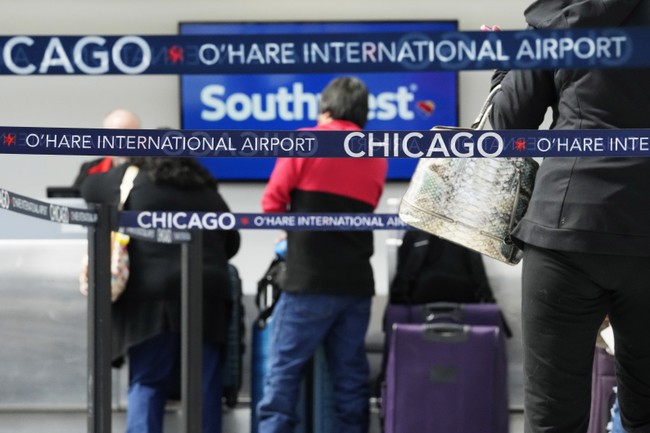
The Justice Department Office of the Inspector General (OIG) released a management alert on Thursday noting significant concerns about the Drug Enforcement Agency’s (DEA) civil asset forfeiture practices at airports and other mass transit facilities.
The report found that the DEA regularly violated its own policies, and used dubious practices such as paying informants a percentage of the cash its agents seized under civil asset forfeiture.
“The DEA was not complying with DEA policy to document each consensual encounter, despite prior DEA representations to the OIG…that the DEA was doing so,” the report noted, referring to instances in which agents obtain a passenger’s consent before questioning them or searching their belongings. IT continued:
By proceeding with such interdiction activities in the absence of critical controls, such as adequate policies, guidance, training, and data collection, the DEA is creating substantial risks that DEA Special Agents and Task Force Officers will conduct these activities improperly.
The DEA also “has not conducted required transportation interdiction training since 2023, despite previous commitment to ensure all personnel were properly trained,” according to the report. “This lack of training increases the likelihood of improper practices and legal violations by DEA personnel.”
The agency also engaged in some potentially unconstitutional practices, the report stated.
The DEA had been paying this employee a percentage of forfeited cash seized by the DEA office from passengers at the local airport when the seizure resulted from information the employee had provided.
The report noted that the informant “had received tens of thousands of dollars from the DEA over the past several years.”
Civil asset forfeiture allows law enforcement agencies to seize a citizen’s property if they suspect it has been used in the commission of a crime without due process. This includes cash, vehicles, jewelry, homes, and other property. In many cases, it is difficult for citizens to retrieve their property as the onerous process typically requires the assistance of expensive attorneys.
The OIG further learned that the DEA Task Force Group selected this traveler for the encounter based on information provided by a DEA confidential source, who was an employee of a commercial airline,” the report explained, also noting that the DEA “imperils the Department’s asset forfeiture and seizure activities and wastes law enforcement resources on ineffective interdiction actions.
The report also referenced an incident in which DEA agents “detained and coerced” a traveler into “consenting to a search after initially refusing.”
“During this incident, after the traveler declined to provide consent, the DEA Task Force Officer detained the traveler’s carry-on bag,” the OIG noted.
Agents found no cash, drugs, or other contraband and the incident caused the traveler to miss their flight.
The traveler made a video recording of this encounter on a personal recording device… None of the members of the DEA Task Force Group were wearing a body-worn camera, which is not required by any DEA or Department policy.
An airline employee was giving the DEA names of passengers who bought a last minute ticket.
DEA would then try to intimidate them into consenting to searches. If civil forfeiture occurred, the employee would get a cut of the $.@IJ helped expose this.https://t.co/g9KR56vwCo
— Dan King (@Kinger_DC) November 22, 2024
This report exposes systemic failures in how the DEA handles civil asset forfeiture at mass transit facilities. It also highlights the myriad of problems inherent with the practice.
The DEA and other federal, state, and local agencies have employed civil asset forfeiture against innocent civilians. Indeed, the practice has created a negative incentive for this practice, which is why it is typically referred to as “Policing for Profit.”
Several states have passed legislation aimed at reforming this practice but many still allow law enforcement agencies to abuse it.
